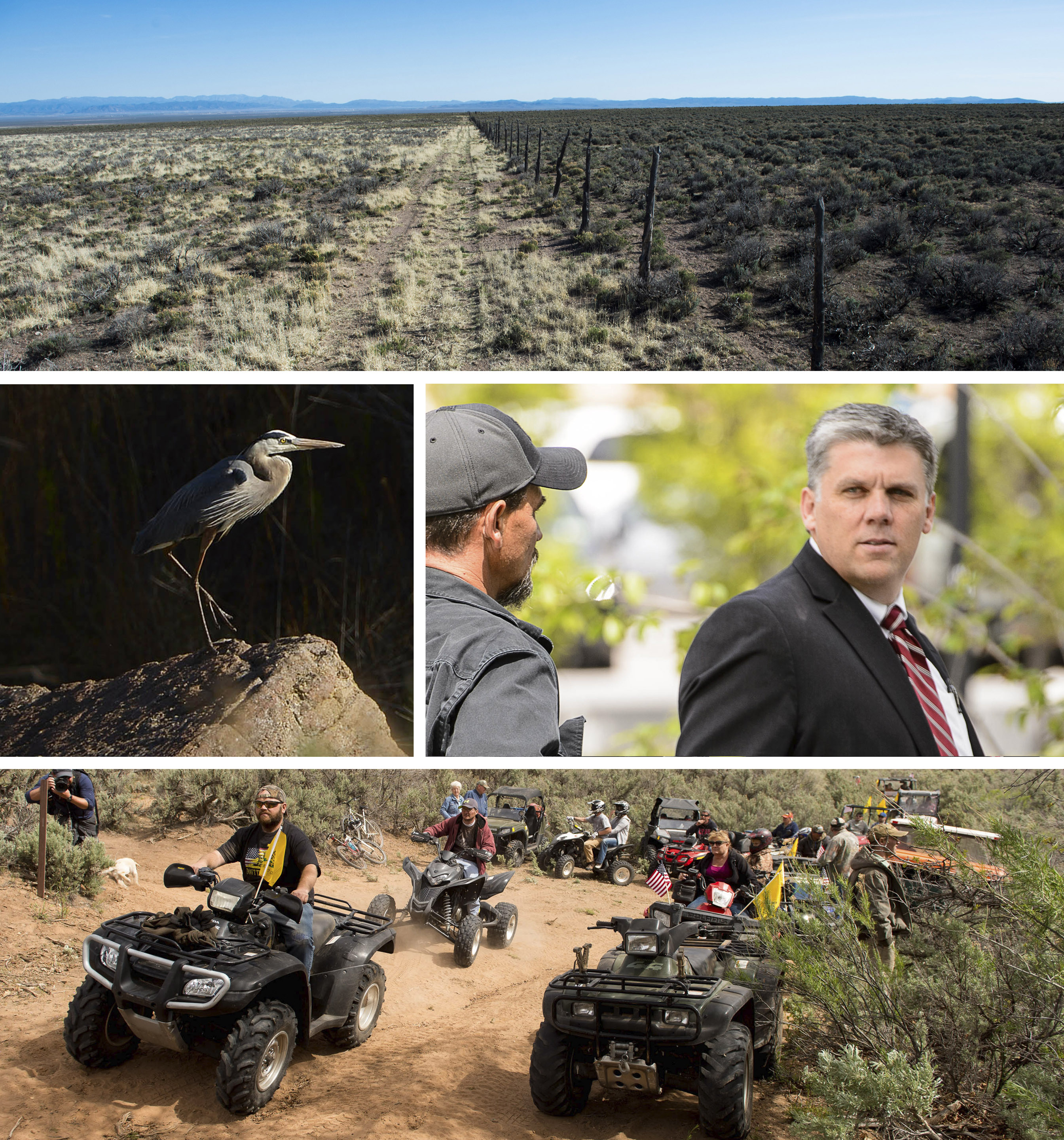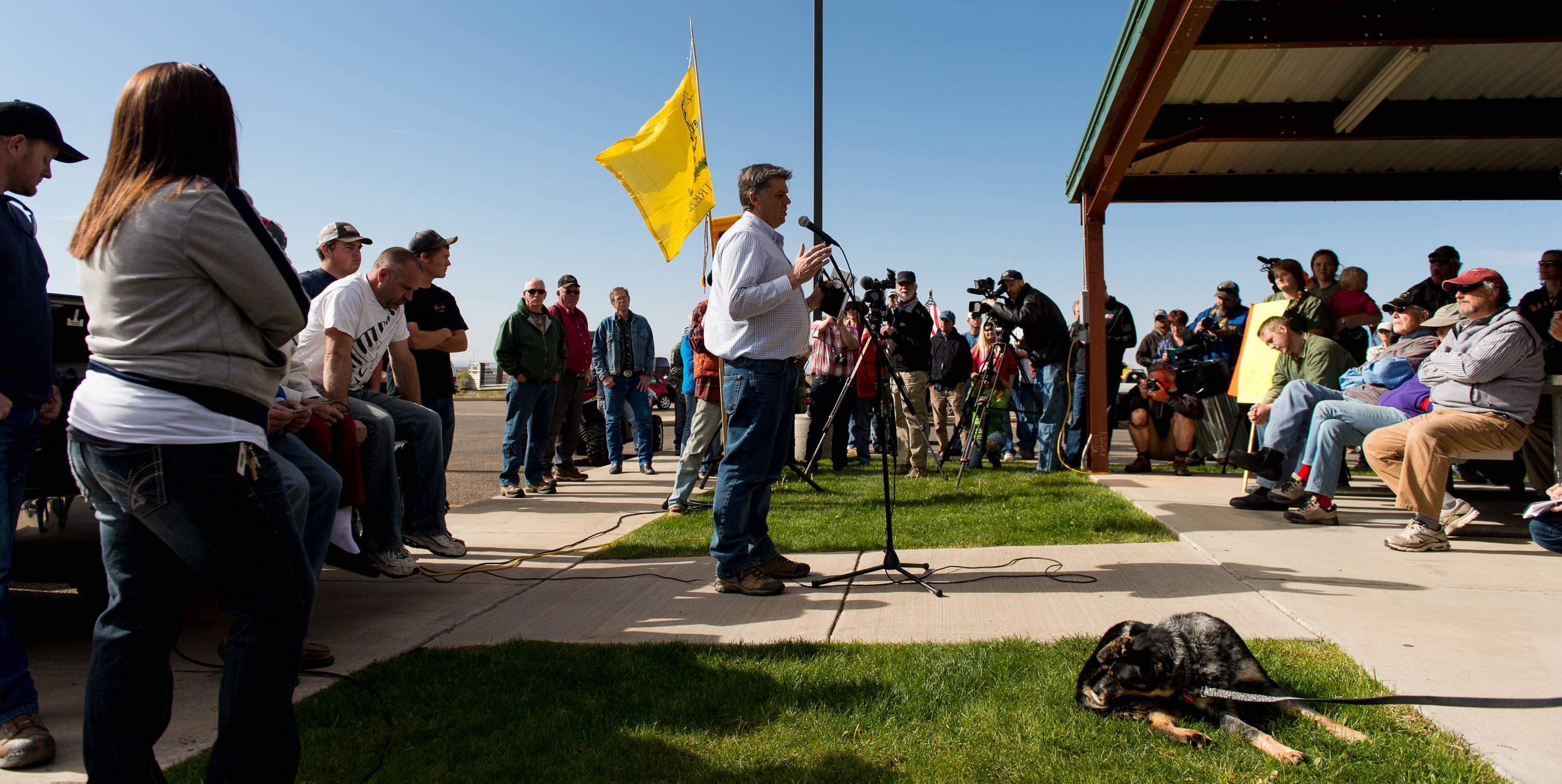The 10th U.S. Circuit Court of Appeals in Denver upheld Monday the conviction of San Juan County Commissioner Phil Lyman for leading a protest ride through Recapture Canyon near Monticello, which federal officials had closed because it was archaeologically sensitive.
The court ruled that Lyman and co-defendant Monte Wells — who owned a website called The PetroGlyph, which helped Lyman promote the ATV ride — failed on all their arguments seeking a new trial and reduction of nearly $96,000 in damages they were ordered to pay.
Lyman told The Salt Lake Tribune he would appeal Monday’s ruling.
A jury in May 2015 found Lyman and Wells guilty of trespass and conspiracy, both misdemeanors, and acquitted two other Utah men who rode into the canyon but played no role in organizing the event.
Lyman was sentenced to 10 days in jail and was fined $1,000 for leading the May 10, 2014, protest ride. Wells was given a five-day jail sentence and was ordered to pay a $500 fine. Both were put on probation for three years.
Lyman appealed — representing himself without a lawyer — arguing that he was the victim of a “modern-day witch hunt” and that U.S. District Judge Robert Shelby should have recused himself from the trial because he is a close friend of Stephen Bloch, legal director of the Southern Utah Wilderness Alliance (SUWA).

Shelby did recuse himself from the sentencing of Lyman and Wells after the verdict, when the defendants questioned his relationship with Bloch and SUWA, which had been critical of them. Shelby said he did so to “promote confidence in these proceedings and avoid even the appearance of impropriety.”
Lyman and Wells argued in their appeal to the 10th Circuit that Shelby should have recused himself earlier.
The appeals court, however, said it found that the trial “cannot be characterized as arbitrary or manifestly unreasonable. Plainly stated, Judge Shelby did not err in failing to recuse.”
Lyman also argued that the government should have disclosed a map that showed an old claim that a public road existed in Recapture Canyon, which he said could have supported arguments that the U.S. Bureau of Land Management illegally closed the canyon.
The court rejected that assertion as well, saying Lyman and Wells “were unaware of the map at the time of the ATV ride” and that evidence provided by the map was “too little, too weak [and] too distant” to sustain their claim.

Lyman and Wells also argued that the government had not adequately supported its assertions that their actions led to the $96,000 in damages that they were ordered to pay. The defendants said most of the damage was caused by others not in the protest ride, in areas beyond where they traveled.
The court disagreed, saying the BLM offered photos of the area before and after the ride, and photos of ATVs on the ride led by Lyman. Monday’s ruling found “no abuse of discretion in the court’s inclusion of restitution of costs.”
Lyman also argued that he had ineffective assistance from his trial attorney in the case. The court said such assertions should be brought in separate proceedings, not on direct appeal.
Lyman told The Tribune that he plans a further appeal to the full nine-judge 10th Circuit and will ask it to review Monday’s ruling by a three-judge panel.
“I’ll do at least that much,” he said, “because I want to give the court every opportunity to do the right thing, so that when they don’t, it will be more of an indictment of what they are all about.”
He believes the full court “would agree I have a right to argue there was no trespass that occurred.”
One of the three-judge panel jurists essentially agreed. Judge Harris L. Hartz wrote in a concurring opinion that he disagrees with suggestions “that a defendant charged with what amounts to criminal trespass cannot challenge the legality of a BLM [U.S. Bureau of Land Management] closure order.”
Lyman complained in an interview that judges take “care of each other in the federal system. They don’t want people to lose faith in the justice system. That’s why they spent so much time in their opinion talking about the recusal of Robert Shelby.”
He added, “From my standpoint, they are between a rock and a hard place there, and they just go with the federal system whenever they can to make sure people don’t lose faith in that system — which people should have absolutely no faith in to start with.”
John W. Huber, the U.S. attorney for Utah, issued a statement, saying, “Contrary to Mr. Lyman’s statement, the federal justice system is not broken.”
“Lyman told the world he was going to commit a crime,” Huber said. “He was warned that if he did commit the crime, he would be held accountable. Mr. Lyman committed the crime, and a jury of his peers unanimously held him accountable.
“Our system is not broken,” he said. “In fact, the system established under the Constitution worked exactly as it should.”